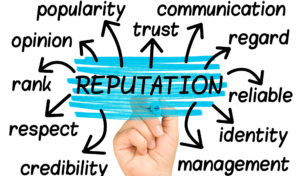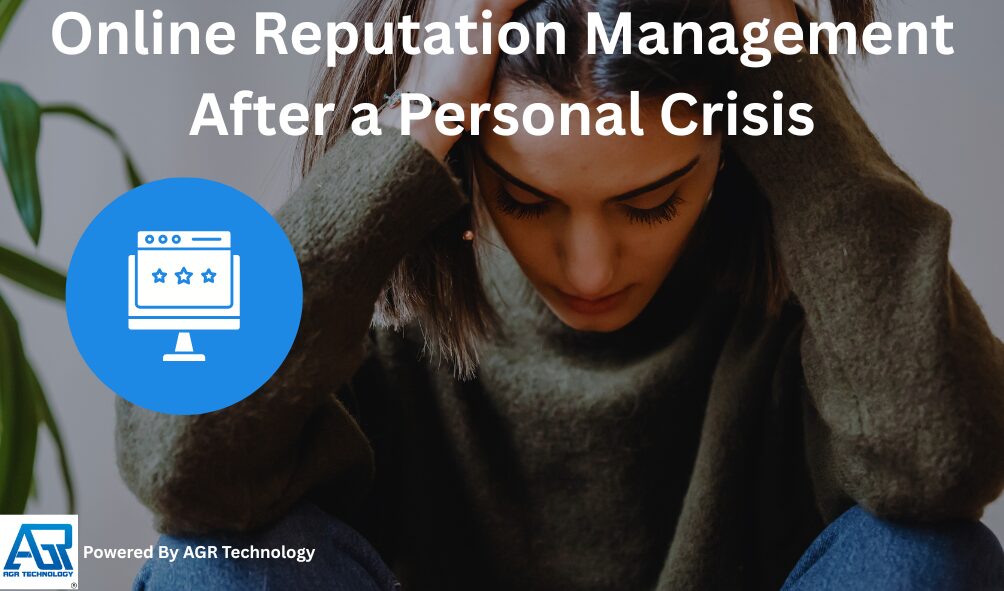A personal crisis can turn your world upside down in an instant—especially online. One negative story or viral comment can quickly overshadow years of hard work and positive achievements. In today’s digital age your reputation isn’t just what people say about you in person—it’s what they find when they search your name.
Managing your online reputation after a crisis has become more important than ever. With over 90% of people researching others online before making decisions, even a single negative incident can have lasting effects on personal and professional opportunities. Taking control of your digital narrative isn’t just about damage control—it’s about rebuilding trust and highlighting your true strengths.
Understanding a Personal Reputation Crisis

A personal reputation crisis disrupts online perception of an individual following negative coverage, harmful content, or social media backlash. Digital platforms record and amplify crises, affecting how others assess credibility. Over 90% of people check online information before deciding to trust or collaborate, so even a single incident alters future opportunities and impressions.
In most cases, personal crises emerge suddenly through controversial statements, negative news, or outdated damaging content. Online reviews, public comments, and news articles often become primary sources of reputational harm when widely shared. Negative trends can escalate as content circulates across platforms like Facebook, Twitter, and Instagram, increasing visibility and impact.
Early identification of a crisis streamlines response efforts. Reputation monitoring services track mentions and flag adverse changes in sentiment, supporting timely intervention. Rapid detection reduces the spread of potentially harmful narratives and limits long-term reputational damage.
AGR Technology provides digital solutions designed to monitor, manage, and restore online reputations after personal crises. Continuous surveillance and expert-led interventions help suppress negative content, promote accurate information, and rebuild trust online. Resource-focused strategies defend credibility while guiding recovery efforts in the aftermath of personal crises.
Assessing the Impact on Your Online Reputation
Assessing the impact after a personal crisis provides the foundation for effective online reputation management. Digital footprints expand rapidly across channels such as social media, news platforms, forums, and review sites during crises. Identifying every negative mention, review, or thread that influences public perception remains essential before taking next steps.
Understanding the scope means using reputation monitoring tools to collect and analyze all relevant data points. For example, tracking branded search queries, analyzing sentiment trends, and mapping the spread of unfavorable content help clarify the crisis’s reach.
Reviewing both qualitative feedback (such as comments on Facebook posts or replies to Tweets) and quantitative signals (like review ratings or social engagement numbers) enables a complete analysis. Assessing mentions over time, volume spikes, and content persistence detects whether reputation harm continues spreading.
AGR Technology offers digital monitoring solutions that centralize this process, providing automated alerts for new mentions, sentiment reports, and detailed reputation dashboards. These tools let users efficiently understand the crisis’s extent, identify high-risk platforms, and prioritize response. Comprehensive impact assessment lays the groundwork for transparent communication, strategic engagement, and overall recovery.
Immediate Steps for Crisis Response
After a personal crisis, timely online reputation management limits further damage and sets the stage for recovery. Immediate actions include monitoring negative content, delivering transparent communication, and consistent online engagement.
Monitoring and Detecting Negative Content
Monitoring digital channels after a personal crisis identifies emerging threats. Tools like Google Alerts flag mentions and negative content on platforms such as search engines, news sites, and social networks. AGR Technology offers streamlined monitoring solutions that use automated alerts and sentiment analysis to pinpoint damaging references quickly. Real-time detection allows for immediate responses, reducing the risk of viral escalation from harmful comments or inaccurate reports.
Communicating Transparently and Responsively
Transparent, responsive messaging builds trust after a crisis. Responding quickly to negative comments and public feedback demonstrates accountability. Clear statements, open acknowledgments of mistakes, and sincere apologies help restore credibility. AGR Technology equips clients with resources for crafting effective responses and managing audience conversations across digital channels. Moving sensitive discussions offline when needed, and highlighting positive testimonials, also shifts public sentiment positively. Consistent engagement and feedback loops keep communication lines open, fostering ongoing reputation recovery.
Strategies to Restore and Strengthen Your Online Presence
Effective online reputation management after a personal crisis relies on deliberate strategies that target both visible content and audience perception. AGR Technology supports these efforts with tailored digital solutions, optimized monitoring, and content services.
Removing or Suppressing Damaging Content
Removing or suppressing damaging content is foundational for reputation recovery. Professionals recommend monitoring search results and media coverage for harmful incidents or negative reviews. AGR Technology’s real-time monitoring tools deliver alerts about new mentions or threats, facilitating immediate action. Experts deploy search engine suppression by creating and optimizing authoritative positive content, pushing negative links off the first search pages. Frequent tactics include launching personal websites, starting dedicated blogs on platforms like Medium, and establishing or updating social profiles. Legal avenues for challenging harmful or outdated content, such as privacy or defamation claims, can also be explored. Regular audits of digital channels ensure that emerging negative content is addressed promptly.
Creating Positive and Authentic Content
Creating positive and authentic content gradually helps rebuild trust and authority in search engines and social channels. AGR Technology offers search-optimized content development, covering blogs, industry articles, testimonial pages, and social media campaigns. Publishing transparent updates and demonstrating ongoing improvements convey accountability. Consistent posts showcasing current achievements and third-party endorsements provide a tangible counterbalance to old negative events. Optimized content banks dominate branded searches, steadily reducing the visibility of negative pages. Marketing insights from AGR Technology help tailor topics and formats, aligning messages with public sentiment.
Engaging Thoughtfully with Your Audience
Engaging thoughtfully with your audience strengthens public sentiment and builds credibility during reputation recovery. Timely, courteous responses to social media feedback and online reviews reinforce transparency and empathy. AGR Technology’s social engagement solutions support strategic communication, ensuring that messages remain professional and direct. Establishing dedicated crisis management teams or assigning clear roles—such as social managers and PR coordinators—empowers organizations to manage community conversations effectively. Creating open dialogue, accepting responsibility for mistakes, and updating stakeholders on corrective actions foster a sense of trust. Ongoing community management, coupled with proactive listening, prevents negative cycles and helps maintain a positive brand narrative.
ORM Strategies Data Table
| Strategy | Tool/Action | Outcome |
|---|---|---|
| Real-time monitoring | AGR monitoring tools, Google Alerts | Early threat detection, prompt issue response |
| Search suppression | SEO content, personal sites | Negative results pushed off Page 1 |
| Legal removal | Defamation/privacy claims | Harmful content deleted or delisted |
| Positive content creation | Blogs, reviews, case studies | Improved search sentiment, trust restoration |
| Thoughtful engagement | Managed replies, PR teams | Audience trust regained, reduced reputational risk |
Long-Term Reputation Management and Prevention
Long-term reputation management after a personal crisis involves sustained monitoring, adaptive strategies, and leveraging trusted digital solutions. Continuous efforts enable individuals to rebuild trust, prevent future incidents, and establish a resilient online narrative.
Consistent Monitoring and Adaptation
Consistent monitoring detects new negative mentions early and enables prompt content management actions. Monitoring tools—such as automated alerts, sentiment tracking dashboards, and branded search query analytics—allow users to respond to incidents as they emerge. AGR Technology provides integrated monitoring solutions that centralize online reputation signals, facilitating real-time detection and clear prioritization of negative coverage. Adaptation occurs as feedback is reviewed and content strategies are adjusted, with ongoing analysis of audience sentiment and engagement metrics guiding each update to online profiles or messaging.
Learning from the Crisis to Prevent Future Issues
Learning from a crisis strengthens reputation resilience by embedding lessons into future practices. Reviewing the crisis response identifies gaps in communication, social media management, and audience engagement. AGR Technology offers resources for comprehensive crisis review—enabling users to refine digital communication plans, establish preventive content guidelines, and apply corrective actions aligned with identified pain points. Sharing positive developments, updating stakeholders on recovery steps, and aligning future actions with core values allow for a measurable shift in public perception. Transparent communication and genuine engagement turn challenges into opportunities for long-term growth and positive reputation reinforcement.
Ethical Considerations in Reputation Management
Ethical reputation management after a personal crisis centers on transparency, honesty, and privacy protection. Each action in the recovery process influences how stakeholders perceive authenticity and trustworthiness.
Transparency matters for restoring credibility. Admitting mistakes and providing open updates show accountability. Honesty shapes public perception during and after a crisis. Accurate information counters misinformation and prevents further reputational damage. Avoiding deception, including fake reviews or content manipulation, aligns with legal compliance and industry standards.
Privacy protection safeguards sensitive details. Responsible data handling respects affected parties and reduces additional risk. Reputational recovery strategies consistently observe legal and ethical boundaries, especially when public statements or content removals are involved.
Third-party support—such as verified testimonials and endorsements—demonstrates authentic positive sentiment. Relying on genuine advocacy, not fabricated evidence, supports long-term reputation recovery and compliance with review platform regulations.
Consistent monitoring using ethical online reputation management tools like those offered by AGR Technology helps identify negative mentions early while maintaining unbiased data analysis. Active listening and respectful engagement drive authentic relationship-building with audiences.
Every step in reclaiming an online image benefits from ethical consistency, ensuring that reputation restoration efforts foster sustained trust and resilience.
Key Takeaways
- Rapid and transparent response to a personal crisis is crucial for limiting online reputation damage and rebuilding trust.
- Continuous monitoring of all digital channels allows for early detection and timely management of negative mentions or reviews.
- Suppressing or removing harmful content, while proactively publishing positive and authentic material, helps shift online sentiment in your favor.
- Engaging constructively and empathetically with your audience demonstrates accountability and supports long-term reputation recovery.
- Ethical reputation management—focusing on honesty, transparency, and privacy protection—is essential for sustained credibility and trust.
- Ongoing assessment and adaptation of your digital strategy can prevent future crises and reinforce a resilient online reputation.
Conclusion
Navigating online reputation after a personal crisis demands a proactive and ethical approach. With the right tools and strategies, individuals can regain control of their digital narrative and rebuild trust over time.
Continuous monitoring and transparent communication remain essential for long-term resilience. By prioritizing authenticity and leveraging expert support, anyone facing a reputation setback can turn adversity into an opportunity for renewed credibility and growth.
Need help with your digital reputation? Contact AGR Technology to see how we can help
Frequently Asked Questions
What is a personal reputation crisis?
A personal reputation crisis occurs when negative information, such as damaging content or online backlash, quickly overshadows your positive achievements and affects how others perceive you online.
How can a personal crisis impact my online reputation?
A personal crisis can rapidly spread negative content across multiple digital channels, affecting public perception. This can lead to loss of trust, damaged relationships, and missed opportunities both personally and professionally.
Why is online reputation management important during a crisis?
Online reputation management helps limit damage, control the narrative, and rebuild trust. Over 90% of people research individuals online, so managing your digital reputation is key to personal and professional success.
What are the first steps to take when facing a reputation crisis?
Begin by monitoring all digital channels for negative mentions, respond transparently, and engage with your audience to address concerns. Using monitoring tools and professional services can help you react quickly.
How do monitoring tools help manage online reputation?
Monitoring tools track mentions of your name or brand online, alerting you to emerging threats, negative comments, and harmful content so you can respond promptly and manage your reputation more effectively.
Can negative online content be removed or hidden?
In some cases, negative content can be removed by contacting platform administrators or through legal means. When removal isn’t possible, suppression strategies like publishing positive content can move negative links lower in search results.
How can I rebuild trust after a reputation crisis?
Consistently communicate with honesty, respond to feedback, issue sincere public statements or apologies if needed, and focus on sharing positive, authentic content that reflects your values and strengths.
What is the role of transparency in reputation recovery?
Transparency builds trust by showing you are honest and accountable, making it easier for others to understand your perspective and move past the negative incident.
Why is continuous monitoring important after a crisis?
Continuous monitoring helps you detect new negative mentions or trends early, allowing you to address potential issues promptly and prevent further harm to your reputation.
How do ethical considerations factor into reputation management?
Ethical reputation management prioritizes transparency, honesty, privacy protection, and compliance with legal standards. This builds long-term trust and ensures your reputation recovery is both authentic and sustainable.
Related content:
Online Reputation Specialist Sydney
Online Reputation Specialist Melbourne
Online Reputation Services For Celebrities

Alessio Rigoli is the founder of AGR Technology and got his start working in the IT space originally in Education and then in the private sector helping businesses in various industries. Alessio maintains the blog and is interested in a number of different topics emerging and current such as Digital marketing, Software development, Cryptocurrency/Blockchain, Cyber security, Linux and more.
Alessio Rigoli, AGR Technology
![logo-new-23[1] logo-new-23[1]](https://agrtech.com.au/wp-content/uploads/elementor/thumbs/logo-new-231-qad2sqbr9f0wlvza81xod18hkirbk9apc0elfhpco4.png)
